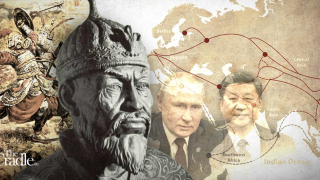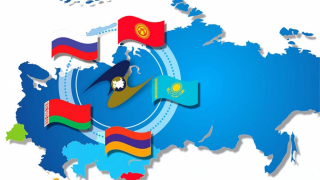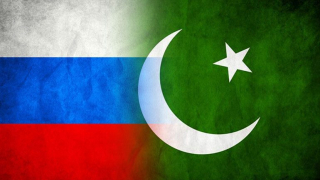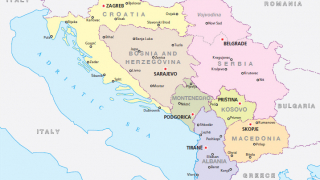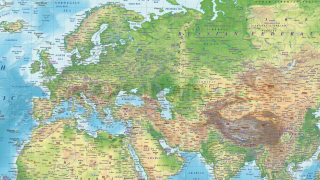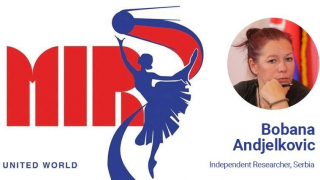EAEU and Serbia – Mutually Beneficial Cooperation
02.05.2018
On the 30th September 2016, formal negotiations related to the creation of free trade zone between Serbia and Eurasian Economic Union started. Lasting throughout the entire 2017, indications of progress were given by Marko Čadež, president of the Serbian Chamber of Commerce and Industry, during his participation in the St. Petersburg International Economic Forum (SPIEF). This new free trade agreement is supposed to replace older bilateral FTAs which Serbia has with Russian Federation, Belarus, and Kazakhstan and expand the market for its products to Armenia and Kyrgyzstan.
Vietnam is an illustrative example of benefits which free trade agreement with EAEU can bring. Free Trade Agreement between the EAEU countries and Vietnam entered into force on October 5, 2016. Ten months later, exports of goods from the Union countries to Vietnam increased by 32% compared to the same period in 2015-2016. Supplies of Vietnamese products to the markets of the EAEU grew by 28%. Given that EAEU is involved in negotiations with other countries, such as India, Singapore, Israel and Iran, Belgrade cooperation with the Eurasian block has potential to lead to the stronger establishment of Serbian merchandise and companies in the fast-growing markets of ASEAN and other Asian countries. Furthermore, once achieved, agreement with EAEU will provide Serbian firms with a venue for joint enterprises with companies from the Union, in a similar fashion to those from Vietnam.
In 2016, Russian International Affairs Council published a paper regarding free trade zone between Serbia and EAEU.This document offers three possible scenarios of development. In the first one, Serbia follows a one-sided European vector of development and refuses FTA with the EAEU. The second scenario is the one in which Serbia and Eurasian Economic Union are temporary allies. Serbia will conclude an agreement FTA with the Eurasian block and extract dividends from this agreement, until the moment to join the EU comes. After joining the EU, Eurasian integration will lose its importance.A third scenario, and the most optimistic one for Serbia, envisions the country as a bridge between Europe and Eurasia. This scenario provides Serbia with conditions for diverse multilateral cooperationwith both European and Asian countries and political blocks, while proving beneficial for not only the country’s economic considerations but security ones as well.
Questionable Path of the EU accession
In contrast to possibilities presented by FTA with EAEU, the process of Serbia accession to EU, especially Chapter 30 which details the foreign affairs obligations, seems to have a more crippling then positive effect on Serbia. According to a statementbyForum of Economists analyst, BorislavBorović, to media outlet Sputnik,Serbia remains one of few countries without cost-benefit analysis of its accession to EU and, thus, is unaware of expenses, gains and costsresulting from this process. In light of this fact, the possibility that Serbia might be better offoutside the EU remains a valid point. What is known, however, is that Serbia, upon closure of Chapter 30, will be forced to withdraw from all free trade agreementsit’s currently engaged in, such as CEFTA, FTAs with Russia, Turkey, Belarus, and Kazakhstan. Only FTA remaining will be the one with EU.
Another important issue related to Chapter 30 is the question of sanctions against Russia. Serbia is one of few countries in Europe which did not introduce sanctions to Russian Federation in 2014.The current stance of Serbia in this regard has very strong popular support and proved beneficial for Serbia in terms of trade and economy. That would have to change if Belgrade is to conclude negotiations with the EU or even close the chapter in questions. All conditions from this part of the accession negotiations are not in the interest of Serbia given that they, if implemented, will have negative economic and political consequences. Report for 2016, made by the Republic Statistics Institute, indicates that 64,4% of total Serbian economic exchange is with the EU members, while the remaining percentage is mostly with other partners Serbia has FTAs with.If we take these facts into consideration,negative effects for Serbian economy seem inevitable. For long-term prospects, it is questionable is further integration into EU economic system beneficial for Serbia given such course of action would only cause larger dependence on EU, thus decreasing diplomatic maneuvering space and jeopardizing economic and political security and sovereignty of Serbia. Diversification of its export and import partners, which would lead to reducedeffectiveness of possible political pressure, is in the best interest of Serbia.
European Union, true to an often displayed policy of double standards, has for several years insisted, especially in theenergy sector, on diversification of partners, but would remove the same option for Belgrade. Furthermore, Germany, the most important EU member state, has no qualms about cooperating with Russia within „Nord Stream“ project.This example illustrates that even member countries within EU take notice of their own interests and act accordingly. Serbia should follow suit. Another important issue is the future of the EU itself in light of Brexitand socio-political changes Europe is currently experiencing. It is questionable how prudent is it to insist upon political goal, now almost twenty years old, in the rapidly changing international community.
Public Opinion
Survey of public opinion in Serbia, from 2015, has shown a clear decline in support for European integrations, on one side, and rising support for cooperation with Russia, and other Asian countries, on the other. Percentage of those who supported EU integrations dropped from 76% in 2009 to 49% in 2015 while those who refused such processes rose from 19% to 44% in the same period. Interestingly enough, 35% of those who would vote against EU accession express their “lack of belief in values EU integration brings”, 20% are “fed up with pressure Serbia endures in order to enter EU” while 32% cite examples of “Greece and Spain as evidence that EU membership will not bring anything good” to Serbia. Unlike EAEU, European Union is not only economic block but also a political and ideological project which disregards national particularities and traditions of those who would join.
Survey touched upon the issue of Kosovo and Metohija itself. In a case where Serbia is required to recognize Kosovo, 57% of those questioned responded that Serbia should refuse to accept even if it meant staying out of EU.94% of those questioned expressed an opinion that interests of Serbia are best served by maintaining strong relations with Russia. China comes in second place, with 89%, while Germany is third with 80%.
Forced to choose just one country, Russia, with 63%, was again the most favorable partner for those questioned.
From results of the survey in question, several trends are apparent. One of them is, by now, traditional popular support for cooperation with Russian Federation and organizations it leads such as EAEU and CSTO. The second trend is growing Euroscepticism within Serbian society. This is not so much a result of EU economic policies, as of objectiveness lacking approach to issues of nation, justice, society and politics in the Balkans since the disappearance of Yugoslavia.
Conclusion
The sovereignty of Serbia and security of Serbian people, especially those living in the occupied province of Kosovo and Metohija are political issues underlining the economic narrative of joining either EU or EAEU. Stark divide in positions regarding this question is noticeable between EU on one side, and Russia and China at the other.Projections indicate Serbia might become EU member by 2025 or even 2030. As Serbia moves ever closer to eventual membership in European Union, it remains unknown what will be the cost of such decision and is such political move beneficial for Serbian state. Will Serbia be forced to recognize Kosovo and allow its access to UN? On 21st January, French ambassador in Serbia, Mondoloni, reiterated that there can be no integration within EU without, how he euphemistically called it, agreement on Kosovo. Serbian population is strongly against it given that direct or indirect, forced or otherwise, recognition of Kosovo by Serbia would legitimize NATO aggression against Yugoslavia in 1999.
However, it is now clear that European Union is not the only supranational project anymore.
As organizations such as EAEU increase their activism, offering economic cooperation without ideological and political baggage, EU might find itself in a position of an outdated concept burdened by a complicated set of laws and power struggle between the supranational EU institutions and national governments.Examples of this struggle are already apparent in the dispute over issue of migrants between Višegrad Group and Brussels and over the issue of judicial reforms between Brussels and Poland. If faced with pressure from Brussels which undermines national interests, even members of the EU might seek more flexible alternatives.
Without losing from sight that every political actor has interests, it is clear which approach to cooperation is more beneficial for Serbia itself. While European Union seeks to integrate countries through a complex system of dependencies and supranational acquisition of national prerogatives, Eurasian Economic Union is focused on the economy and guided by the principle of the sovereign equality of states, the need for unconditional respect for the rule of constitutional rights and freedoms of man and national. Faced with its own particular set of challenges, it would be most prudent for Serbia to forgo any kind of permanent obligation, such as membership in EU, for the sake of more liberty in dealing with its own issues and the wider specter of possible partners on the international level.


